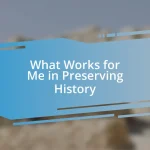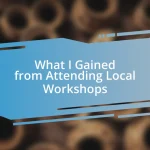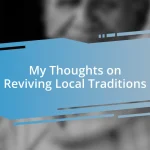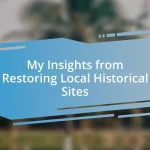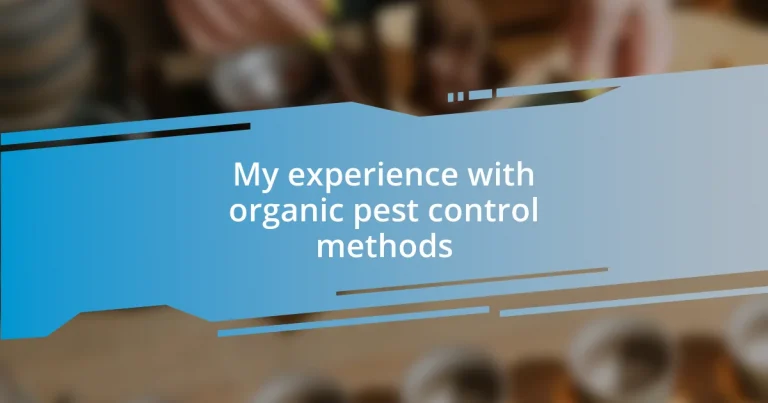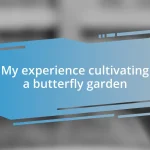Key takeaways:
- Embracing organic pest control promotes a balanced ecosystem and allows gardeners to solve challenges through natural solutions, fostering a deeper connection with their garden.
- Key benefits include environmental safety, enhanced biodiversity, healthier produce, improved soil health, and the sense of empowerment gained from overcoming gardening challenges.
- Successful implementation relies on observing pest behavior, preparation, and leveraging community knowledge while being aware of the challenges like unpredictability and timing in organic methods.
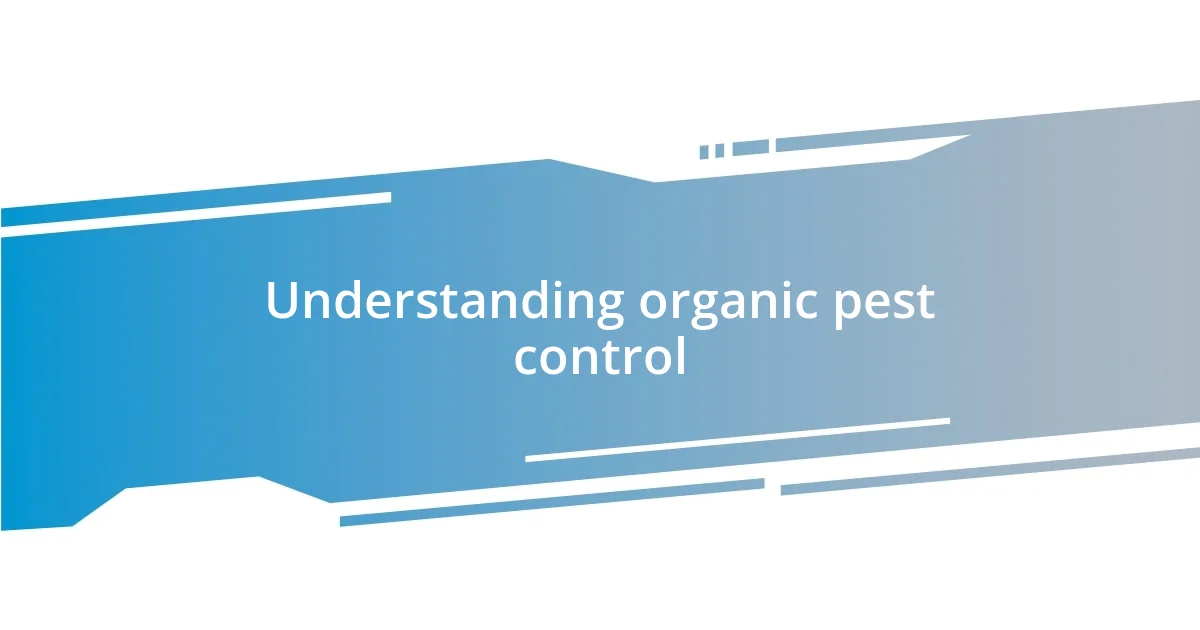
Understanding organic pest control
Understanding organic pest control is all about embracing nature’s tools instead of relying on synthetic chemicals. For instance, when I first shifted to organic gardening, I was pleasantly surprised to discover how effective introducing beneficial insects, like ladybugs, can be. It’s fascinating to think—who knew that inviting a few little friends could significantly reduce aphid populations?
In my experience, organic pest control methods promote a balanced ecosystem. One time, I faced an invasion of caterpillars on my kale plants, which made me feel both discouraged and determined. Rather than reaching for harsh pesticides, I mixed a simple solution with soap and water, and after a little trial and error, I found that it helped manage the problem effectively. Doesn’t it feel empowering to tackle challenges with natural solutions?
Moreover, I’ve learned that organic pest control isn’t just about fighting pests; it’s also an opportunity to cultivate a deeper connection with my garden. Each time I meticulously inspect my plants for signs of trouble, I’m reminded of the intricate relationships in nature. Isn’t it amazing how each small action, like planting marigolds or using garlic sprays, can contribute to a healthier environment?
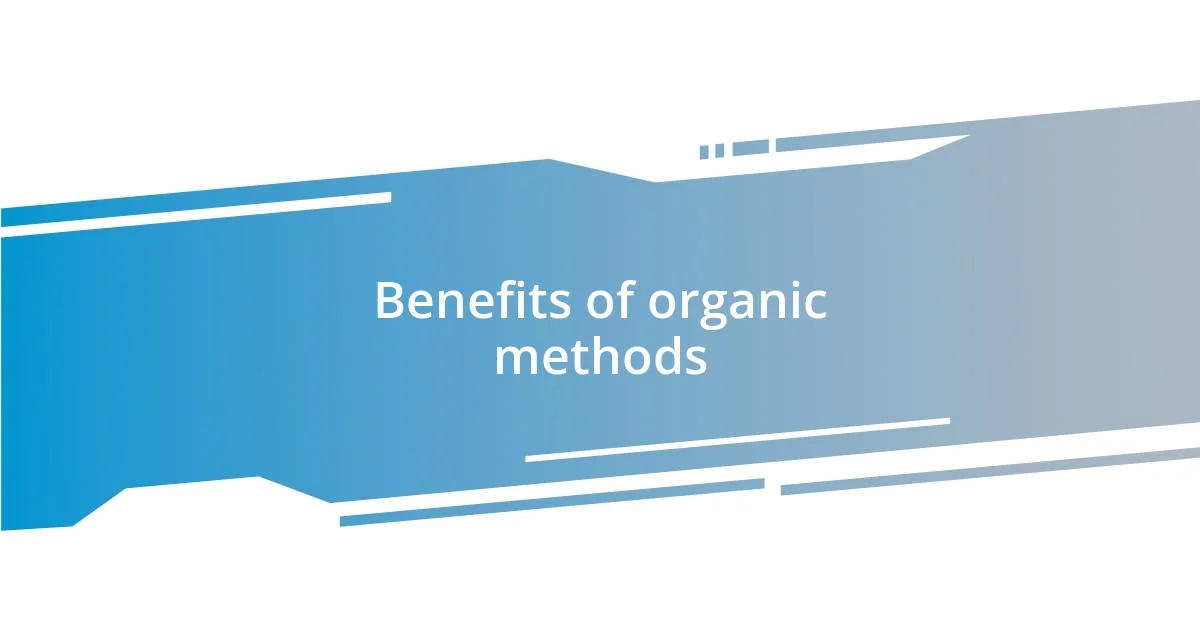
Benefits of organic methods
The benefits of organic pest control methods are truly remarkable, both for the environment and for my gardening experience. I remember when I discovered how using diatomaceous earth could gently help combat slugs and snails. Watching those pesky critters retreat without harming beneficial insects felt like a small victory, reminding me that sustainable practices can yield effective results without the guilt of harming the ecosystem.
Benefits of Organic Methods:
- Environmental Safety: No harmful chemicals leach into the soil or nearby waterways.
- Biodiversity: Encourages a diverse range of beneficial insects, enhancing the balance of the garden.
- Healthier Produce: I’ve noticed that the fruits and vegetables I grow using organic methods taste better and are free from synthetic residues.
- Soil Health: Organic techniques, like composting, improve soil health over time, leading to stronger plants.
- Empowerment: There’s a sense of accomplishment in solving problems nature presents, which fosters a deeper connection to the garden.
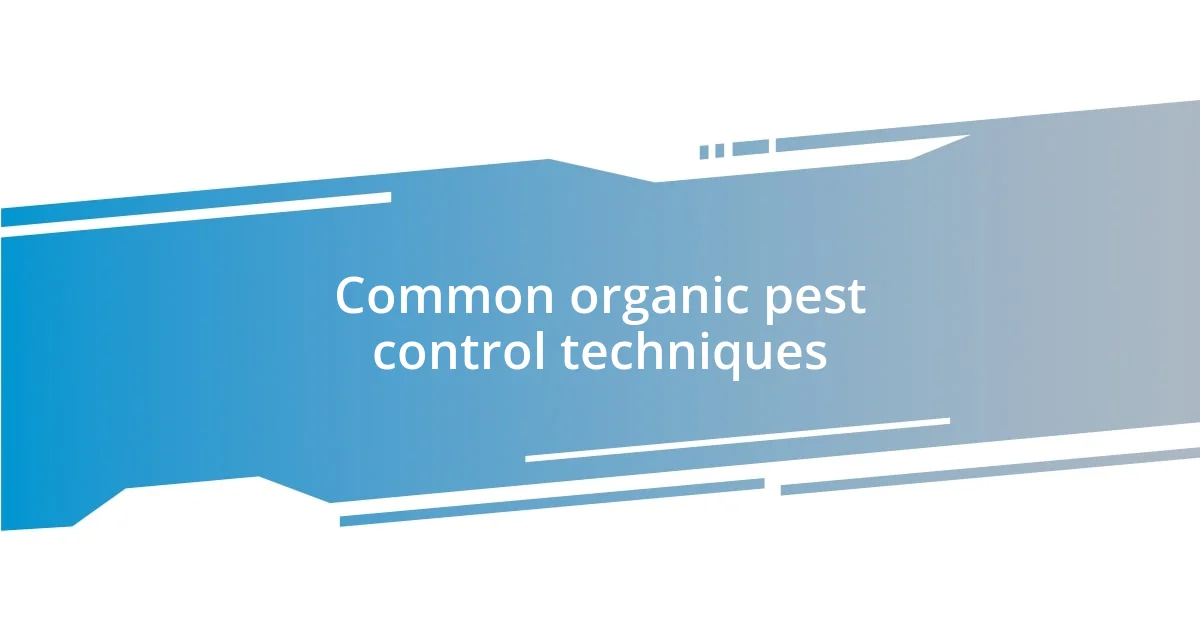
Common organic pest control techniques
Organic pest control techniques can be quite diverse, and I’ve had my fair share of experiences with a few of them. One standout method for me has been companion planting. I remember the moment I paired basil with tomatoes—those aromatic leaves not only enhanced the flavor of my dishes but also repelled pesky tomato hornworms. Seeing my plants thrive without chemicals felt like unraveling a little secret of nature.
Another technique I’ve found invaluable is using neem oil. A few summers ago, my zucchini plants were struggling with aphid infestations. I decided to give neem oil a try, and within days, the aphids took a hike! It was such a relief, as I didn’t want to jeopardize the entire season’s yield. It reminded me just how often nature provides us with solutions, if we’re willing to look for them.
In addition to these, I’ve experimented with physical barriers, such as row covers. During one particularly fierce spring, I covered my seedlings to keep away wandering pests. The sense of protection – not just of the plants but also my hard work – was incredibly satisfying. These organic pest control methods truly provide a connection to the garden that can be both empowering and deeply rewarding.
| Technique | Description |
|---|---|
| Beneficial Insects | Introducing natural predators like ladybugs to control pest populations. |
| Companion Planting | Planting specific plants together to deter pests and promote growth. |
| Neem Oil | A natural pesticide derived from the seeds of the neem tree, effective against various pests. |
| Diatomaceous Earth | A powder made from fossilized algae that deters crawling insects. |
| Physical Barriers | Using row covers to protect young plants from pests. |

Tips for successful implementation
To successfully implement organic pest control methods, it’s essential to observe your garden closely. When I first started, I would often rush into decisions without realizing how important it is to understand pest behavior. For example, do you know when your plants are most vulnerable? This knowledge can help you strategically time your interventions and minimize potential damage.
Preparation is key! I distinctly remember one spring where I took the time to set up my row covers in advance. Watching my seedlings thrive without the usual pest pressure was immensely satisfying. Have you ever experienced that feeling of relief when you realize you’ve set your garden up for success? It’s all about creating an environment where beneficial insects can thrive while keeping the harmful ones at bay.
Lastly, don’t underestimate the power of community knowledge. I’ve learned so much just by chatting with fellow gardeners at the local farmer’s market. They’ve shared personal tips that I would have never considered on my own, like how to attract pollinators with specific flowers to boost plant health. Engaging with others not only expands your understanding but also adds an emotional connection to your gardening journey. What have you learned from those around you?
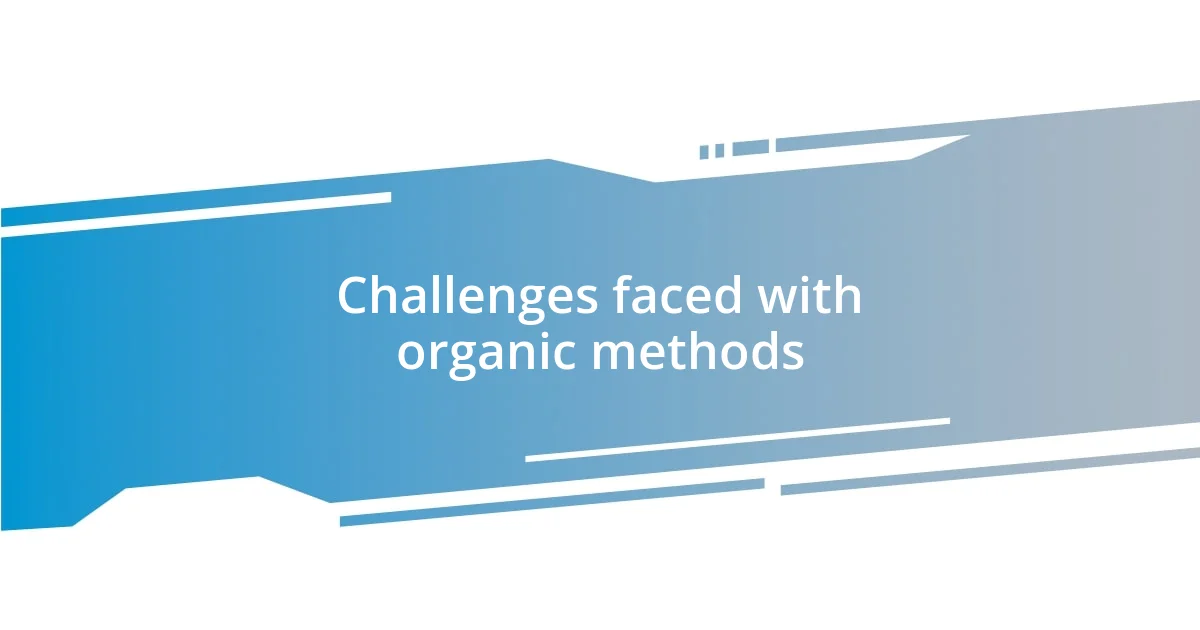
Challenges faced with organic methods
When I first dove into organic pest control, one of the biggest challenges I faced was the unpredictability of natural methods. For instance, while I was thrilled to use beneficial insects like ladybugs, I often wondered whether they’d stick around long enough to make a difference in my garden. It felt a bit like waiting for guests to show up to a party—exciting, but potentially disappointing if they didn’t arrive!
I also encountered moments where timing proved crucial. Certain organic methods, like applying neem oil, required pinpointing the exact moment pests decided to feast on my plants. I remember being too late one season, with my harvest suffering as a result. It made me realize that with organic methods, you really have to be proactive and attuned to the rhythms of your garden.
Additionally, there were times when my enthusiasm for experimentation landed me in over my head. I tried mixing various organic solutions, thinking I could amplify their effectiveness. Instead, I learned that not all combinations are wise, leading to unexpected outcomes that could have been avoided with a little more restraint. Have you ever been so eager to solve a problem that you jumped in without considering the consequences? It’s a common pitfall in gardening, but one that ultimately deepened my understanding of what works best in harmony with nature.

Resources for further learning
One of the best resources I discovered during my organic gardening journey was online gardening forums. They serve as vibrant communities where enthusiasts share their experiences and insights. I recall a particularly illuminating discussion on companion planting that opened my eyes to pairings I had never considered before. Have you ever stumbled upon a tip that completely changed your approach? Engaging in these forums can be a goldmine of knowledge.
Books, too, have played a crucial role in my learning. Titles like “Rodale’s Basic Organic Gardening” became indispensable references on my shelf. I vividly remember the first time I turned to it for advice on pest identification; it was like having a trusted friend guide me through my problems. What books have shaped your understanding of gardening? It’s amazing how a well-written guide can provide clarity and confidence in tackling organic methods.
Lastly, I can’t stress enough the importance of local agricultural extension offices. These organizations often host workshops and offer resources tailored to your region’s specific climate and pest challenges. Attending a workshop on organic pest management turned out to be a game-changer for me. I walked away not just with knowledge but also with a community of local gardeners who became a support system in my pest control endeavors. Have you ever thought about reaching out to local experts? You might be surprised at the wealth of information they hold!
